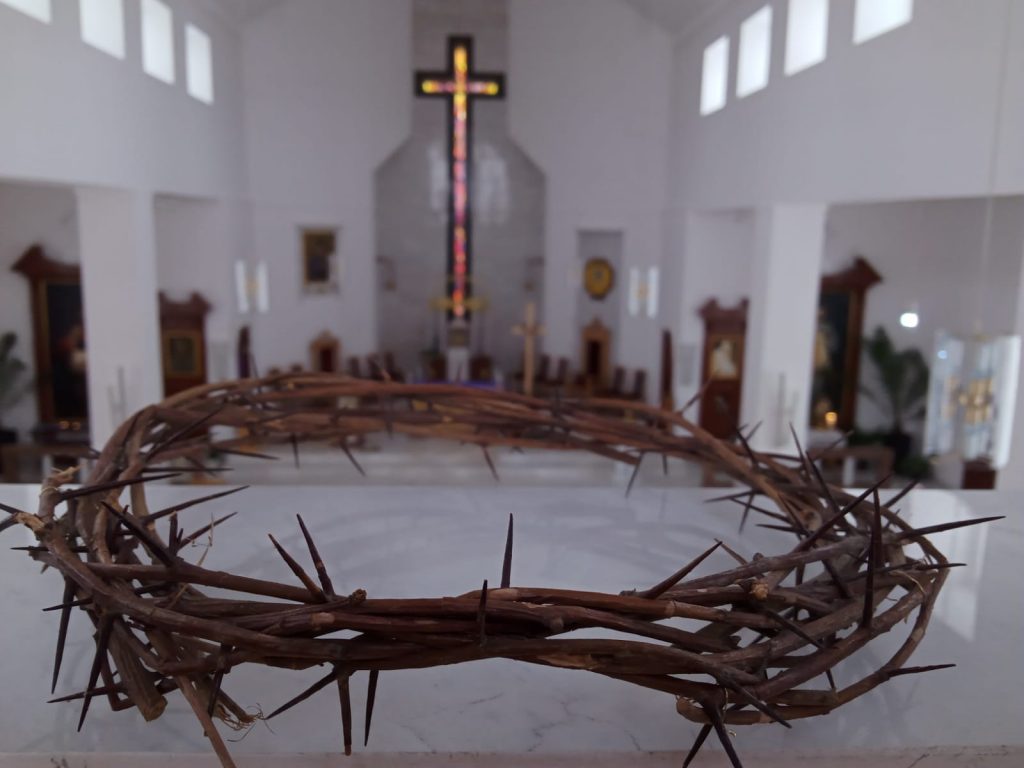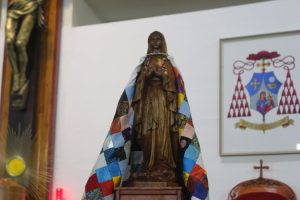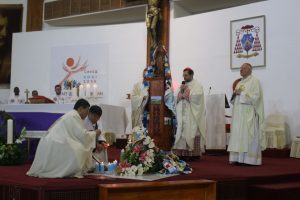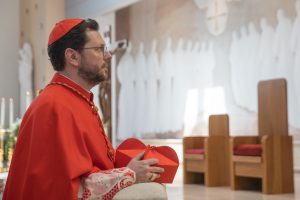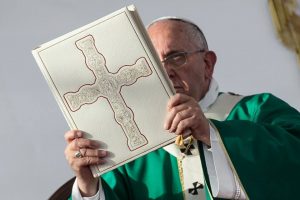Fasting is a voluntary restriction in food intake, accompanied by other spiritual and ascetic practices, performed for the purpose of spiritual transformation. Fasting, as a rule, precedes a big holiday and helps to prepare for it. Lent precedes the greatest event of Christianity – the resurrection of Christ, and fasting among Muslims in the holy month of fasting – Ramadan is connected to the revelation of the Quran.
Fasting is one of the oldest religious practices, and since the spiritual and physical principles in a person have always conflicted with each other, fasting is as old as humanity itself. The first fasting can be called God’s command in the Garden of Eden not to eat from the tree of the knowledge of good and evil. Moses, the Prophet Elijah and Christ fasted for 40 days, the Prophet Muhammad also fasted, and although the traditions of experiencing fasting differ in different religions, its meaning and purpose are similar: fasting brings a person closer to God.
The Catholic Lent
The Catholic Lent begins on Ash Wednesday, on this day in all churches, as a sign of repentance and humility, priests sprinkle ashes on the heads of believers or mark their foreheads with a cross.
Catholics have different days of strict and non-strict fasting. Strict fasting is prescribed on Ash Wednesday and the Good Friday, it implies a complete rejection of food or contentment with one meal in a limited amount during the day. On Fridays and, if desired, on other days of Great Lent – a non-strict fast, which means the rejection of meat. Fasting does not apply to Sundays, since every Sunday is a holiday and a remembrance of Easter.
An important component of the Catholic fast is the intention, that is, the decision to give up something for 40 days for personal spiritual growth. The content of such an intention is individual and is determined by each believer independently, an example may be the rejection of social networks, coffee, alcohol, watching a TV series, listening to music, and more.
The Orthodox Lent
The Great Lent among the Orthodox, just like the Catholics, lasts about 40 days, hence its second name, common among Orthodox Christians, is the “Great Fast”.
The Great Lent in the Orthodox tradition is preceded by a preparatory period. 2 weeks before the start of the fast on Wednesdays and Fridays, you need to give up all non-fasting foods, and for one week (it falls on Shrovetide) you should give up meat.
The church charter prescribes the strictest abstinence of food on the first and penultimate days of fasting – Clean Monday and Good Friday (Holy Friday). On these days, total abstinence from food is recommended. On other days, it is forbidden to consume animal products – meat, milk, eggs, fish and vegetable oil. Vegetable oil is allowed on Saturdays, Sundays, Holy Thursday and on the days of some especially revered saints. Fish is allowed only twice per fast: on the Annunciation to the Blessed Virgin Mary (April 7) and on Palm Sunday. Caviar is allowed on Lazarus Saturday.
Muslim fasting – uraza
Like the Christian fast, the Muslim fast is also associated with prayer and giving alms (sadaqah and zakat).
In Kazakhstan, it is customary to call fasting uraza. Uraza occurs during the Muslim holy month of Ramadan, lasts 30 days and is determined by the lunar calendar. Fasting begins at dawn with the morning prayer (azan). After that, devout Muslims completely refuse not only food, but also drink, as well as smoking and intimacy. After sunset and evening prayers, all restrictions end before the next morning.
Christianity and Islam agree that the goal of fasting is not only in the restriction of food, but also in internal purification – the rejection of thoughts and actions that defile a person. Both religions consider the time of fasting to be sacred and important, capable of bearing great spiritual fruit.
I would like to complete this article with the words of St. Basil the Great – the theologian and saint, recognized by both the Catholic and Orthodox churches.
“Fasting produces prophets and strengthens the strong; fasting makes the teachers wise. Fasting is a reliable protection for the soul, an unshakable helper for the body, a weapon for the valiant, and a trainer for athletes. Fasting drives away temptations, anoints to piety; he is the friend of vigilance and the builder of chastity. It fights bravely in war, teaches peace in the world.
A Blessed Lent to you!
